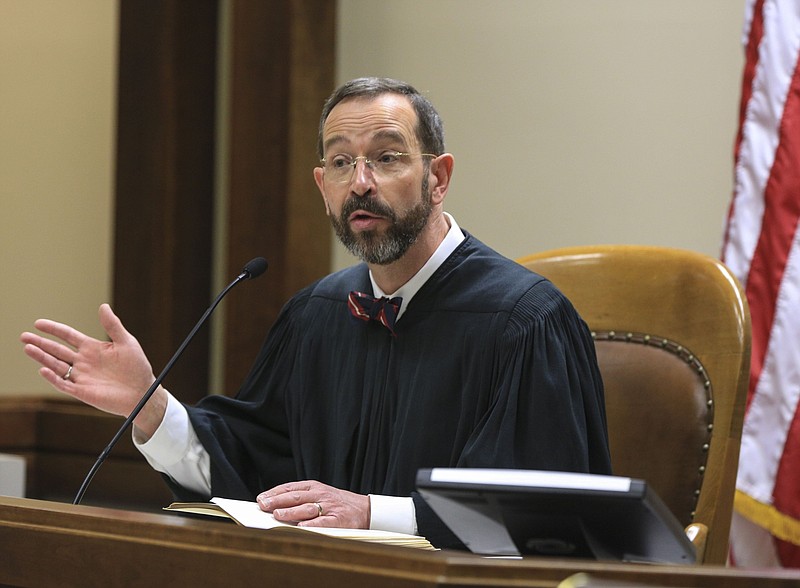Thousands of dollars in legal fees due to intervenors in a long-running Pulaski County school desegregation lawsuit are to be paid in full and not in installments, a federal judge said Friday.
Chief U.S. District Judge D. Price Marshall Jr. "corrected" his Jan. 28 court decision regarding payment of legal fees and costs by the Pulaski County Special School District to attorneys who represent Black students in the case.
The class of all Black students in the Pulaski County Special district was originally known as the Joshua intervenors but more recently as the McClendon intervenors.
"The Court made a mistake about the McClendon Intervenors' position on the payment of attorney's fees over time. This error must be corrected," Marshall wrote in the Friday decision.
The school system now owes the attorneys for the Black students $324,888.25 less the monthly amounts already paid by the district, the judge wrote. Additionally, interest on the fees shall accrue at 0.054 % from last May 6 until the district pays the debt in full, the judge said.
After Marshall's January order, the attorney team for the Black students, led by Austin Porter Jr. and Robert Pressman, challenged the installment pay plan.
"The Court's order was based on a mistaken fact that the Intervenors did not object to the installment plan for payment as proposed by the Pulaski County Special School District," the legal team wrote to Marshall in February.
"The Intervenors did in fact object to the district's proposal to pay the Intervenors' attorneys' fees and costs," they wrote and added that Marshall's decision to allow the district to pay the fees over time "is an abuse of discretion" and sets a precedent that does not discourage bad behavior.
The fees should be paid in full with interest, the team argued.
"In essence, the district court is allowing a violator of civil rights to determine when and how attorney's fees are to be paid," the McClendon attorneys wrote.
Marshall ruled in a 68-page order last May that the Pulaski County Special and Jacksonville/North Pulaski school districts are "unitary" with the exception of some facilities issues. The McClendon intervenors had challenged the district's assertions that it had met its desegregation requirements.
Marshall said last May that the Pulaski County Special district has met its obligations in regard to student discipline, student achievement and self-monitoring of desegregation efforts.
But the judge also directed the Pulaski County Special district to "square up" inequities between the Mills University Studies High School campus, which is in a more heavily Black residential section of the district, and Robinson Middle School, which is in a more affluent, predominantly white residential area. The two schools were built at the same time and opened to students in August 2019.
Marshall said in May that both buildings are "excellent facilities," but he called Robinson "superior." "[I]f Mills High gets an A, Robinson Middle gets an A++," the judge wrote at the time.
The judge just recently approved the district's proposed plan for improving Mills, which will include the addition of 10 classrooms, a 2,200-seat arena, a softball field and upgrades to the school's JROTC facility -- all at what the judge said would cost about $19 million.
"The Court is familiar, to some extent, with PCSSD's finances and financial challenges," Marshall wrote in the order Friday.
"But the driving reason behind the Court's approval of installment payments was its (mistaken) understanding that this request was unopposed. With that corrected, the Intervenors are entitled to receive the fees awarded now."
The McClendon attorneys had also asked the judge in February to revisit his decisions "to drastically reduce" the number of hours that their legal team spent on the case as well as his decision to reduce the hourly rates customarily charged by the legal team.
Marshall on Friday denied those parts of the McClendon request.
"The Court pondered the hourly rates, as well as how much of the requested fees (particularly for litigation) should be awarded, considering all the circumstances and the applicable law," Marshall responded. "And the Court did the best it could in its 28 January 2022 Order to explain its thinking about what a reasonable fee was. The Court stands by its decision on those issues."
